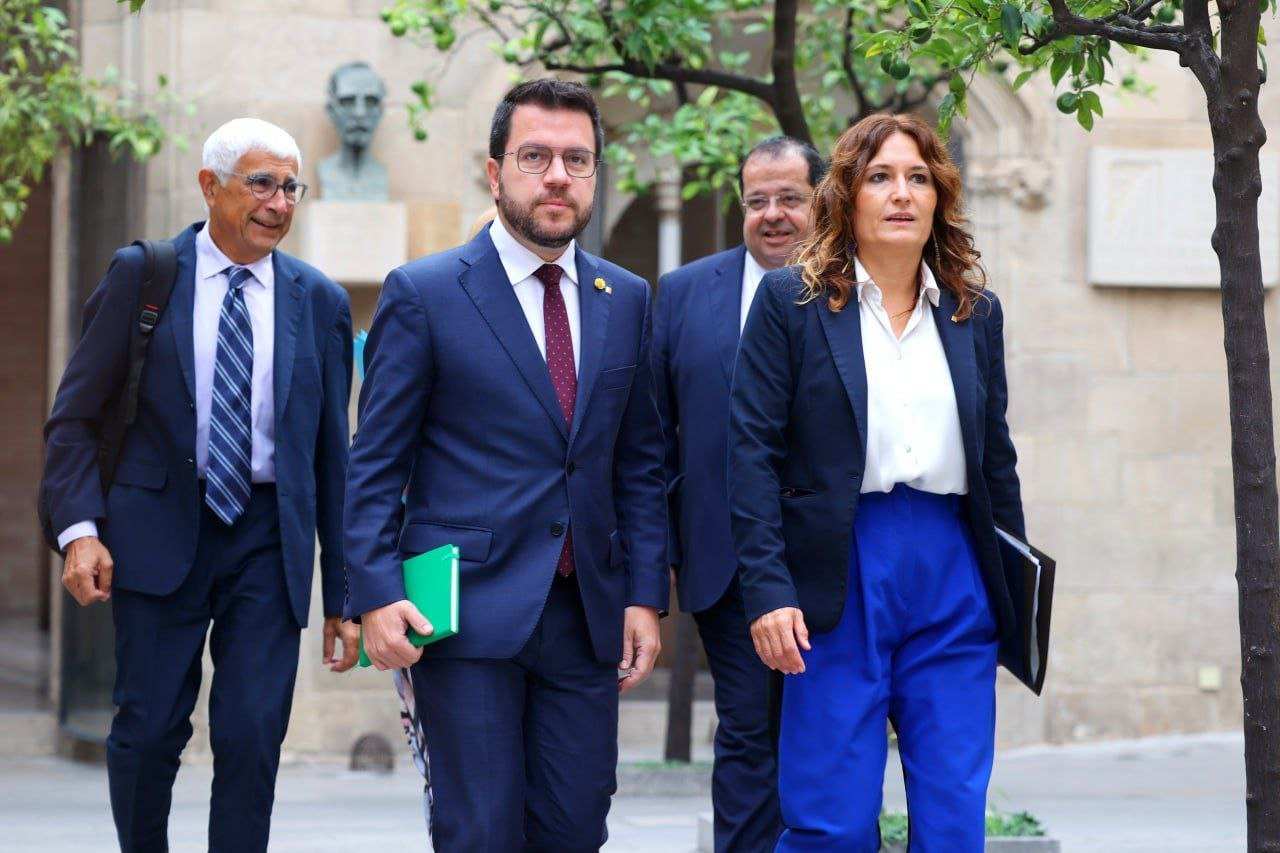The president of the Generalitat of Catalonia, Pere Aragonès, is to go to Spain's Senate this Thursday to speak before the body's general committee for the Autonomous Communities. The invitation, promoted by the People's Party (PP), seeks the views of Spain's autonomous community presidents on a possible amnesty law for those affected by pro-independence prosecutions. The Socialist regional presidents and the Basque Country's lehendakari, Iñigo Urkullu, have already announced that they will not attend. However, this Tuesday, at the post-cabinet meeting press conference in Barcelona, the Catalan government spokesperson, Patrícia Plaja, argued that "the president of Catalonia is the one who speaks about Catalonia and no one will defend the amnesty better than the president of the Generalitat".
The intention of the PP in the upper house is to force the autonomous community presidents to pin down their views about the move which intends to wipe the slate clean for Catalan independence supporters, as part of the investiture agreement for Pedro Sánchez. The presidents are not obliged to attend, and can delegate attendance to a member of their government or simply not go. Basque president Urkullu has argued that his government will not attend because it considers the hearing a "campaign of partisan interest" by the PP.
Great consensus
In contrast to the views of the Basques, the Catalan government spokesperson has explained that Aragonès will go to the upper house to defend, in front of the regional presidents, "the great consensuses of Catalonia such as amnesty and self-determination". Despite the fact that he has been asked for clarification, he has not specified what the proposal will be that he will defend before the other autonomous community leaders who are present. The spokesperson also avoided commenting on the decision of the Socialist and Urkullu presidents not to attend the committee session.
Plaja limited herself to arguing repeatedly that the government "will never a space empty which it is able to use to talk about fundamental issues such as the end of the repression and the amnesty, and it will not leave in the hands of the PP a debate on the amnesty when they have been one of the main promoters of the political repression against the independence movement". The spokesperson emphasized that the president has defended the Government's position in Parliament and will do so in the Senate as well "in the face of the reactionary right that only thinks about Catalonia, only puts it in their mouths, to generate tension".
Palestine
At this Tuesday's meeting, the Catalan government, which has reiterated its concern for the situation in Gaza, approved a direct grant of 800,000 euros to the United Nations Agency for Palestine Refugees in the Near East "to respond to the humanitarian emergency situation in Gaza".
When asked if the Catalan government, like the left-wing Sumar platform, demands the recognition of the state of Palestine, the spokesperson explained that the "Government is in favour of the two-state solution, which is endorsed by the United Nations and would obviously involve a recognition of the Palestinian state". Plaja stressed that the urgent need is to stop the outbreak of violence, which is why the Generalitat is appealing to mediation and international law.

